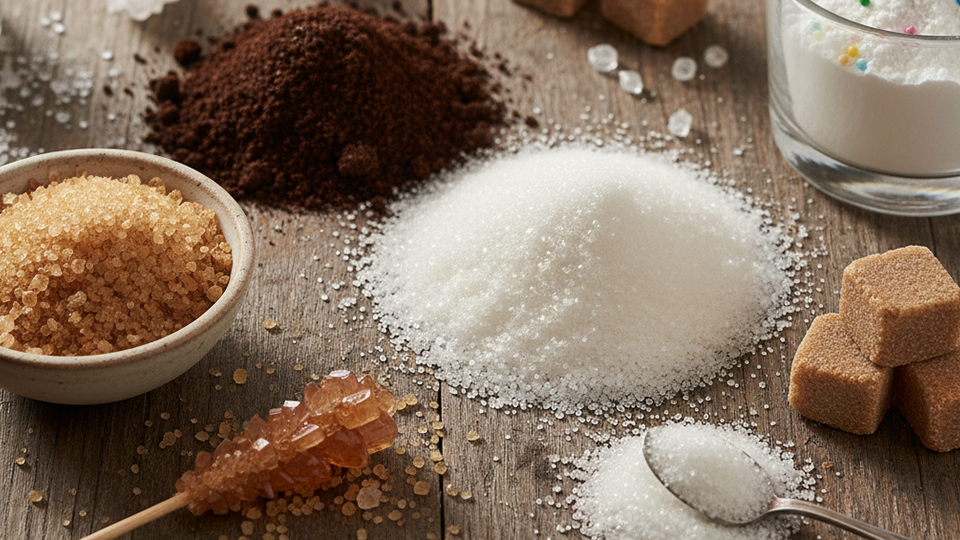By no means is creatine the main and only ingredient in AMPED™ Power, but it is one that causes confusion about its function in the body. Though athletes have concerns that creatine causes water retention and weight gain, the research behind creatine in AMPED Power suggests otherwise.
Creatine is among the best-studied sports supplements around. Researchers have been investigating the benefits of this natural substance since at least the early 1970s and our knowledge of its benefits for supporting both athletic performance and overall fitness has grown substantially (1).
Creatine is a compound that is naturally found in the body in small amounts and is used as a source of muscle energy. Consuming creatine as a supplement will increase the amount of creatine in muscle tissue and can provide an edge during workouts. Some of the benefits of creatine may stem from the added muscle energy it provides. This added energy increases resistance to muscle fatigue (2).
Over many years of creatine research, scientists have refined our knowledge of how to target creatine use for maximum benefit. In the early days, researchers worked to identify how best to use creatine and considered questions like, “If a little is good, is a lot better?”
These older studies often involved relatively high doses; for example, 10 or 20 grams of creatine per day. When using this type of supplement protocol, researchers have found that nearly 50 percent of the creatine that study participants ingest is excreted in their urine (3). In addition to wasting about half of the supplement down the drain, high-dose creatine occasionally causes mild gastrointestinal symptoms (4). Some researchers have also noted an increase in body weight or total body water (often thought of as “bloating”) following creatine supplementation with high-dose protocols (4, 5).
To address some of the problems related to high-dose creatine supplements, newer research has focused on identifying an effective, targeted supplement strategy that produces measurable benefits while minimizing waste.
In one recent study conducted at Bloomsburg University, scientists found that low-dose creatine supplements are effective at enhancing resistance to muscle fatigue without causing weight gain or increases in total body water (6). Researchers randomly assigned study participants to receive either a dietary supplement that contained two to three grams of creatine or to receive a placebo daily for six weeks. The creatine dose used in this study is much lower than the 10 or 20 gram amounts used in previous studies. Researchers measured the subject’s weight, BMI, and body composition before and after the study along with exercise performance that measured maximum strength and muscle fatigue.
The participants who received creatine were significantly more resistant to muscle fatigue during exercise after six weeks of supplementation than they had been at the beginning of the study. There were no changes in muscle fatigue in the group who received a placebo. There were also no changes in the participant’s body weight, BMI, body composition, or total body water. This study demonstrates that low-dose creatine supplements, when taken consistently over time, are effective at lowering muscle fatigue without causing weight gain or increase in total body water.
AMPED Power is designed to contain an effective, optimal dose of creatine combined with Nitrosigine™ and citrulline. These two nitric oxide precursors work synergistically to boost blood flow and provide improved delivery of oxygen and nutrients, including creatine, to working muscles.
References
- Harris RC, Hultman E, Nordesjö LO. Glycogen, glycolytic intermediates and high-energy phosphates determined in biopsy samples of musculus quadriceps femoris of man at rest. Methods and variance of values. Scand J Clin Lab Invest 1974;33:109–20.
- Branch JD. Effect of creatine supplementation on body composition and performance: a meta-analysis. Int J Sport Nutr Exerc Metab. 2003 Jun;13(2):198-226.
- Rawson ES, Clarkson PM, Price TB, Miles MP. Differential response of muscle phosphocreatine to creatine supplementation in young and old subjects. Acta Physiol Scand 2002;174:57–65.
- Poortmans JR, Francaux M. Adverse effects of creatine supplementation: fact or fiction? Sports Med 2000 Sep;30(3):155-70.
- Law YL, Ong WS, GillianYap TL, Lim SC, Von Chia E. Effects of two and five days of creatine loading on muscular strength and anaerobic power in trained athletes. J Strength Cond Res 2009;23:906–14.
- Rawson ES, Stec MJ, Frederickson SJ, Miles MP. Low-dose creatine supplementation enhances fatigue resistance in the absence of weight gain. Nutrition. 2011 Apr;27(4):451-5. doi:10.1016/j.nut.2010.04.001





